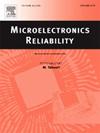RRAMulator: An efficient FPGA-based emulator for RRAM crossbar with device variability and energy consumption evaluation
IF 1.6
4区 工程技术
Q3 ENGINEERING, ELECTRICAL & ELECTRONIC
引用次数: 0
Abstract
The in-memory computing (IMC) systems based on emerging technologies have gained significant attention due to their potential to enhance performance and energy efficiency by minimizing data movement between memory and processing unit, which is especially beneficial for data-intensive applications. Designing and evaluating systems utilizing emerging memory technologies, such as resistive RAM (RRAM), poses considerable challenges due to the limited support from electronics design automation (EDA) tools for rapid development and design space exploration. Additionally, incorporating technology-dependent variability into system-level simulations is critical to accurately assess the impact on system reliability and performance. To bridge this gap, we propose RRAMulator, a field-programmable gate array (FPGA) based hardware emulator for RRAM crossbar array. To avoid the complex device models capturing the nonlinear current–voltage (IV) relationships that degrade emulation speed and increase hardware utilization, we propose a device and variability modeling approach based on device measurements. We deploy look-up tables (LUTs) for device modeling and use the multivariate kernel density estimation (KDE) method to augment existing data, extending data variety and avoiding repetitive data usage. The proposed emulator achieves cycle-accurate, real-time emulations and provides information such as latency and energy consumption for matrix mapping and vector–matrix multiplications (VMMs). Experimental results show a significant reduction in emulation time compared to conventional behavioral simulations. Additionally, an RRAM-based discrete Fourier transform (DFT) accelerator is analyzed as a case study featuring a range of in-depth system assessments.
RRAMulator:一个高效的基于fpga的RRAM交叉杆仿真器,具有器件可变性和能耗评估
基于新兴技术的内存计算(IMC)系统由于其通过最小化内存和处理单元之间的数据移动来提高性能和能源效率的潜力而获得了极大的关注,这对数据密集型应用程序尤其有益。由于电子设计自动化(EDA)工具对快速开发和设计空间探索的支持有限,利用新兴存储技术(如电阻式RAM (RRAM))设计和评估系统面临相当大的挑战。此外,将技术相关的可变性纳入系统级模拟对于准确评估对系统可靠性和性能的影响至关重要。为了弥补这一差距,我们提出了RRAMulator,一种基于现场可编程门阵列(FPGA)的RRAM交叉栅阵列硬件仿真器。为了避免复杂的器件模型捕获非线性电流-电压(IV)关系,从而降低仿真速度并增加硬件利用率,我们提出了一种基于器件测量的器件和可变性建模方法。我们部署查找表(lut)用于设备建模,并使用多变量核密度估计(KDE)方法来增加现有数据,扩展数据多样性并避免重复使用数据。该仿真器实现了周期精确的实时仿真,并为矩阵映射和向量矩阵乘法(vmm)提供了延迟和能耗等信息。实验结果表明,与传统的行为模拟相比,仿真时间显著缩短。此外,基于ram的离散傅立叶变换(DFT)加速器作为一个案例研究进行了分析,具有一系列深入的系统评估。
本文章由计算机程序翻译,如有差异,请以英文原文为准。
求助全文
约1分钟内获得全文
求助全文
来源期刊

Microelectronics Reliability
工程技术-工程:电子与电气
CiteScore
3.30
自引率
12.50%
发文量
342
审稿时长
68 days
期刊介绍:
Microelectronics Reliability, is dedicated to disseminating the latest research results and related information on the reliability of microelectronic devices, circuits and systems, from materials, process and manufacturing, to design, testing and operation. The coverage of the journal includes the following topics: measurement, understanding and analysis; evaluation and prediction; modelling and simulation; methodologies and mitigation. Papers which combine reliability with other important areas of microelectronics engineering, such as design, fabrication, integration, testing, and field operation will also be welcome, and practical papers reporting case studies in the field and specific application domains are particularly encouraged.
Most accepted papers will be published as Research Papers, describing significant advances and completed work. Papers reviewing important developing topics of general interest may be accepted for publication as Review Papers. Urgent communications of a more preliminary nature and short reports on completed practical work of current interest may be considered for publication as Research Notes. All contributions are subject to peer review by leading experts in the field.
 求助内容:
求助内容: 应助结果提醒方式:
应助结果提醒方式:


